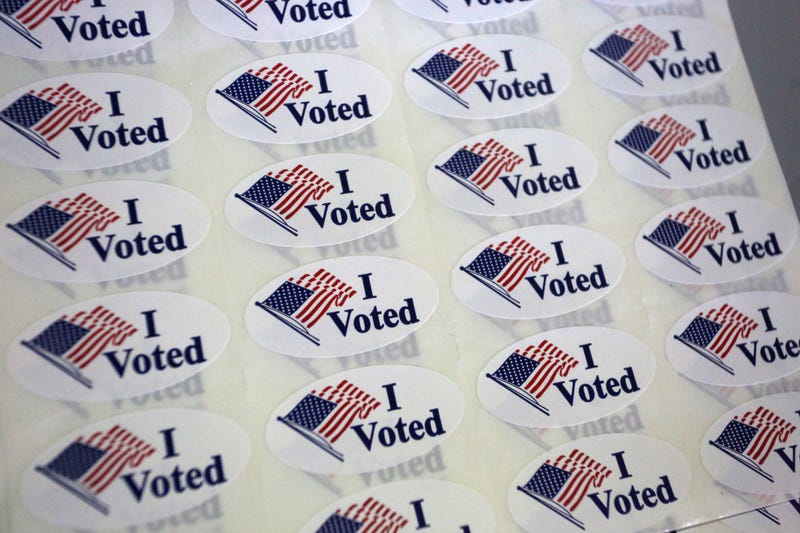
PHILADELPHIA (AP/KYW Newsradio) — A federal appeals court on Wednesday affirmed a lower court's decision to order New Jersey Democrats to scrap a ballot design widely viewed as helping candidates with establishment backing.
The 3rd Circuit Court of Appeals considered a slimmed-down appeal brought by the Camden County Democrats after the county clerks — the officials charged with designing ballots in New Jersey — dropped out of the appeal of a lower court's temporary injunction.
The appeals court's decision means that U.S. District Judge Zahid Quraishi's order requiring clerks to stop using the so-called county line ballot, which lists candidates with political party support in a single column and often relegates others to “ballot Siberia,” will stand.
But that court's order far from resolves the issue in New Jersey, which had been unique in the country for using the county line style ballots. Quraishi's order applies only to the Democratic primary on June 4 because Republicans sought to join the lawsuit after a deadline passed.
“Very convoluted, but it has to do with who brought the case and who brought the challenge,” explained Micah Rasmussen, director of Rider University’s Rebovich Institute for New Jersey Politics.
Rasmussen said there is another case on the long-term legality of the county line ballot system, and these federal rulings mean any future decisions will likely be similar. As for now, county clerks are doing their best to meet the judge’s requirements.
“But it does look different from county to county,” he said. “If the Legislature does decide to get involved next year, and they do decide we are going to set a standard going forward so that all ballots are going to look the same now, with this office block requirement, then they can do that. And there’s a lot of indication that they want to do that. Whether they can agree on what it’s going to look like, I guess, is a different question.”
Once a pillar of politics in the state, the county line ballot began showing signs of crumbling this year. Senate candidate Democratic Rep. Andy Kim brought the lawsuit with House candidates Sarah Schoengood and Carolyn Rush, alleging that the system unfairly helped those with party backing get preferential ballot placement. Soon after, state Attorney General Matt Platkin said he found the county line to be unconstitutional.
Legislative leaders have said they acknowledge the need to address the issue, though it is unclear how it will end up.
For now, under the judge's order, the Democratic primary will unfold with an “office block” ballot, or a listing of candidates near the office they are seeking, as the rest of the country uses.
In an emailed statement, William Tambussi, the attorney for Camden County Democrats, said the organization respects the court's decision.
"The Committee believes that the First Amendment freedom of association held by political parties is an important constitutional right to defend. The current system in Camden County has led to slates of elected officials of historic diversity and qualifications without limiting anyone’s access to the ballot," Tambussi said.
A message was left with the attorney for the Camden Democrats seeking a response to the appeals court's ruling.
Kim's lawsuit came in the context of — at the time — what looked like a challenging primary fight against first lady Tammy Murphy for the seat held by indicted Sen. Bob Menendez. Menendez has said he won't seek reelection as a Democrat, but he could possibly run as an independent after federal corruption trial ends.
Murphy had won the endorsement of a handful of county party leaders, winning the line on the ballot there. But Kim seemed to capture a growing tide of progressive frustration with the system. Murphy dropped out of the race, acknowledging the high stakes in November given that Democrats have a narrow majority in the Senate and saying she didn't want to attack a fellow Democrat.
Kim is now in a strong position for the Senate seat in a state that hasn't elected a Republican senator in over five decades.
Rasmussen said this is indeed a major development in New Jersey politics, and it implies candidates for governor next year may have to rethink their strategies, which traditionally have revolved around seeking party backing in each county.
